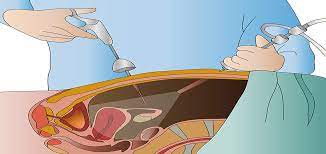Laparoscopic surgery, also known as minimally invasive surgery, involves using small incisions and specialized instruments with the aid of a camera (laparoscope) to perform surgical procedures. This approach offers several advantages over traditional open surgery, including quicker recovery times, reduced pain and scarring, and shorter hospital stays. Here are some conditions and diseases that can often be treated with laparoscopic surgery:
Gynecological Conditions:
- Endometriosis: Laparoscopic surgery can be used to remove endometrial tissue growths and adhesions.
- Fibroids: Depending on the size and location, fibroids can sometimes be removed or treated using laparoscopic techniques.
- Ovarian Cysts: Cysts on the ovaries can often be removed or drained laparoscopically.
- Pelvic Inflammatory Disease (PID): In some cases, laparoscopic surgery may be used to treat severe cases of PID.
Gallbladder Conditions:
- Gallstones: Laparoscopic cholecystectomy (removal of the gallbladder) is commonly performed using minimally invasive techniques.
Digestive System Disorders:
- Appendicitis: Laparoscopic appendectomy (removal of the appendix) is frequently performed and offers faster recovery compared to open surgery with Laparoscopic Surgeon in Jaipur.
- Hiatal Hernia: Laparoscopic repair of hiatal hernias is feasible in selected cases.
- Reflux Disease (GERD): Laparoscopic fundoplication is a surgical treatment option for severe cases of gastroesophageal reflux disease.
Hernias:
- Inguinal Hernia: Laparoscopic repair of inguinal hernias is increasingly common and can lead to faster recovery with less pain compared to traditional open surgery.
- Incisional Hernia: Some incisional hernias can be repaired using laparoscopic techniques.
Urological Conditions:
- Kidney Conditions: Laparoscopic surgery can be used for procedures such as nephrectomy (removal of the kidney) or partial nephrectomy.
- Prostate Conditions: Laparoscopic surgery may be used for certain prostate procedures, such as prostatectomy in selected cases of prostate cancer.
Bariatric Surgery:
- Weight Loss Surgery: Procedures like laparoscopic gastric bypass or laparoscopic sleeve gastrectomy are performed to help with weight loss in obese individuals.
Other Conditions:
- Thoracic Conditions: Some chest surgeries, such as thoracoscopic lung biopsy or pleural procedures, may be performed laparoscopically.
- Adrenal Gland Conditions: Laparoscopic adrenalectomy (removal of the adrenal gland) is feasible for certain benign and malignant conditions.
The suitability of laparoscopic surgery for a specific condition depends on factors such as the size and location of the problem, the patient’s overall health, and the experience and preference of the surgical team. While laparoscopic surgery offers many advantages, not all conditions can be treated this way, and some cases may still require traditional open surgery. It’s essential for patients to discuss their options with their healthcare provider to determine the most appropriate treatment approach for their individual situation.




.png)

Comments